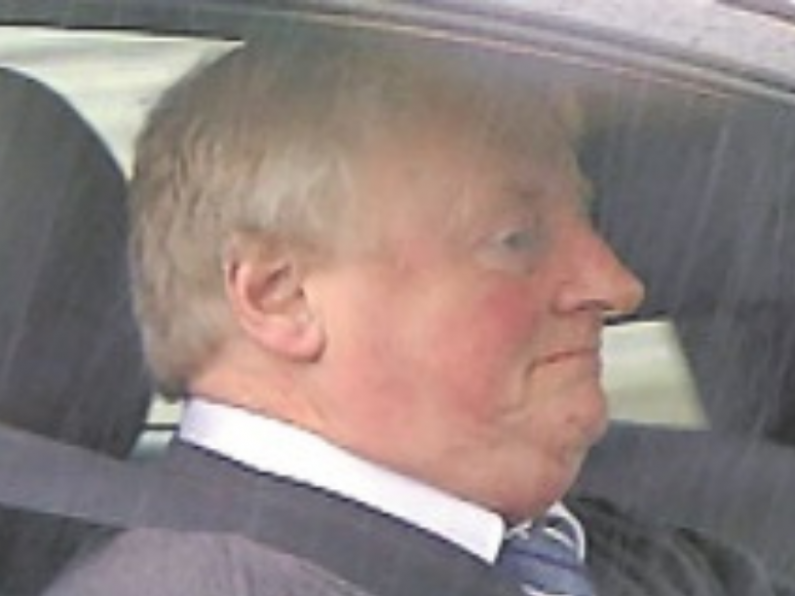Sex abuser Bill Kenneally said he “probably” would have confessed to abusing teenage boys if gardaí had acted on information they received two years before he had initially spoken to officers about his crimes.
Kenneally said that by 1985, he knew his abuse of teenagers was wrong and that he needed to stop.
The former Waterford basketball coach made the admissions while giving evidence at the Commission of Investigation examining the response of gardaí and others to allegations of sexual abuse made against him.
The commission, chaired by retired judge Michael White, is also examining Basketball Ireland, as well as politicians and members of the Catholic Church.
During proceedings on Tuesday, Kenneally said he told Gardaí in a 1987 meeting about his abuse of teenage boys, but “heard nothing” from gardaí again on the matter until 25 years later.
However, it emerged on Wednesday that one of his victims had told gardaí that he was abused by Kenneally as early as 1985, but claimed they did not act on the information.
Kenneally, aged in his early 70s and formerly of Summerville Avenue, Waterford City, is serving a prison term after pleading guilty to 10 sample counts of indecently assaulting 10 boys at various locations in Waterford in the 1980s.
Disclosures
Giving evidence on Wednesday, Kenneally also refused to accept that he ruined the lives of his victims, saying that he did not know why they took so long to come forward.
Ray Motherway BL, representing two victims, told the commission that there was an incident in 1985 involving one of Kenneally’s victims.
Kenneally was shown pictures of the survivors and confirmed he was aware of both them.
Mr Motherway said his client stated that Kenneally picked him up in his vehicle and was abused by him.
He said he was left angry by what happened and went to the Garda station the following morning.
Kenneally told the commission he was familiar with the victim’s evidence.
Mr Motherway said the victim gave Kenneally’s name to gardaí, saying he had been “sexually abused by Bill Kenneally”.
However, the victim claims he was told by gardaí that there was nothing they could do for him without an adult.
Two years before
The commission was told that this conversation happened in 1985, two years before Kenneally was spoken to by Gardaí about his abuse of teenage boys.
“This occurred in June 1985 and by June 1987, you went for interview with An Garda Síochána,” Mr Motherway added.
It was put to Kenneally that by that stage, would he have held his hands up and whether his position had changed in respect of his viewing of offending. Kenneally said he felt that he needed help and that he needed to stop.
He agreed that on the day he spoke to gardaí in 1987, his admission to the abuse “had been coming for some time”.
He agreed that he realised he wanted to be stopped and that by 1985, he realised the errors of his ways.
“Did you know what you were doing was wrong?” Mr Motherway asked.
“I probably did,” Kenneally replied.
He was asked that if Gardaí had acted on that information and knocked on his door, would he have “had it in his heart to tell them?”
“I probably would have,” he told the commission.
Kenneally said he “probably” would have confessed to his crimes by 1985.
I don’t know why it took them 30 years to come forward
Asked what gardaí would have found if they had searched his home at the time, Kenneally said they would have found orange twine, handcuffs, and scissors, as well as a flash lamp.
He also told the commission he kept photographs of boys in a shoebox in a bedroom.
Co-operation
Barrister Barra McGrory, representing several victims, asked Kenneally about how he regularly gave boys of 13 and 14 “significant amounts” of alcohol.
Kenneally accepted that he regularly supplied alcohol from his car and his house to young boys.
Mr McGrory put it to him that the purpose of buying alcohol for 13-year-old boys was to “loosen their inhibitions so they would be more co-operative of what you intended to do”.
His response, “co-operative insinuates consensual”, drew gasps from his victims, who are listening to his evidence in the same room.
It was also put to Kenneally whether he accepted that he ruined their lives.
He told the commission that “if I did, I don’t know why it took them 30 years to come forward”.
It was put to him that the abuse of his victims increased in severity over time, which Kenneally accepted – however, he added that he “had my own opinion”.
If you have been affected by any of the issues raised in this article, you can call the national 24-hour Rape Crisis Helpline at 1800-77 8888, access text service and webchat options at drcc.ie/services/helpline/ or visit Rape Crisis Help.
By Cate McCurry, PA
Keep up to date with all the latest news on our website Beat102103.com.






